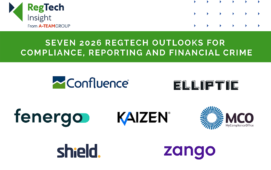The UK regulator has reminded firms and counterparties within the scope of MiFID II to ensure they meet the regulation’s Legal Entity Identifier (LEI) requirement before the extended deadline of July 3, 2018.
“After July 3 firms will be required to gather (and be in a position to report) their clients’ LEIs before they trade on their behalf,” said the Financial Conduct Authority (FCA) in a recent emailed statement to Thomson Reuters Regulatory Intelligence. “We do not believe this will cause any significant disruption for firms. The FCA has been working with the industry to ensure that the vast majority of transactions do have the right client LEI information.”
On a European scale, Stephan Wolf, CEO of the Global LEI Foundation (GLEIF) says LEI issuance is three to four times higher than it was a year ago, although still below the peak it hit in December before MiFID II went live on January 3.
He does not expect any major fallout when the LEI mandate takes effect on July 3, noting that: “There will be some late arrivals, but financial services firms are well aware that they must get LEIs for all their counterparties. The six-month delay of the LEI is not a grace period, banks can report without an LEI, but they have to prove that counterparties have initiated the process of getting an LEI.”
MiFID II requirements make LEIs mandatory for all firms wishing to trade. The mandate was initially intended to take effect as part of MiFID II implementation on January 3, 2018, but the European Securities and Markets Association (ESMA) delayed the requirement until July 3, 2018 as it became aware in December 2017 that not all firms would be able to meet the January deadline.
A survey conducted by Data Management Review and Thomson Reuters back in October 2017 (as part of the white paper ‘Meeting Client and Counterparty Identifier Requirements Under MiFID II’) found worrying gaps in coverage. Around 30% of respondents noted that less than half of their clients had LEIs in place, while others highlighted difficulties around a lack of awareness about the need for LEIs by organisations in other jurisdictions, especially Asia. There was also confusion about which legal entities needed to register for an LEI, and two-thirds of those who participated in the survey registered concern about a lack of LEI preparedness causing market disruption.
Since then there has been improvement, and the outlook is altogether more positive. Total global LEI issuance increased by a third (33%) to 1,205,885 between December 2017 and June 2018, while in the UK (which accounts for 10.5% of total issuance) the figure has reached 126,346, according to the latest data from the GLEIF.
ESMA is expected to make a further announcement about the use of LEIs within the next three weeks to clarify next steps, so watch this space.
Subscribe to our newsletter




